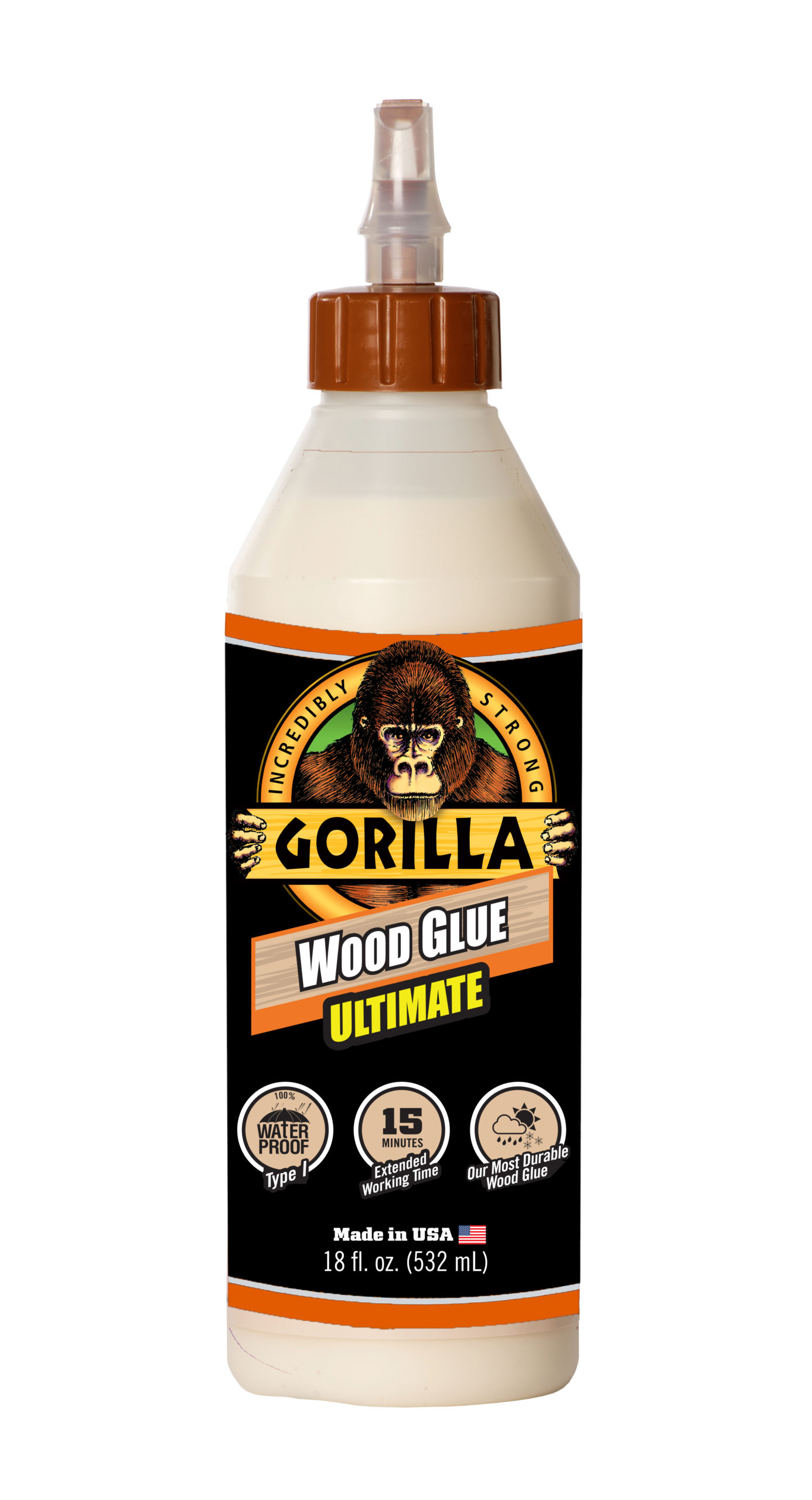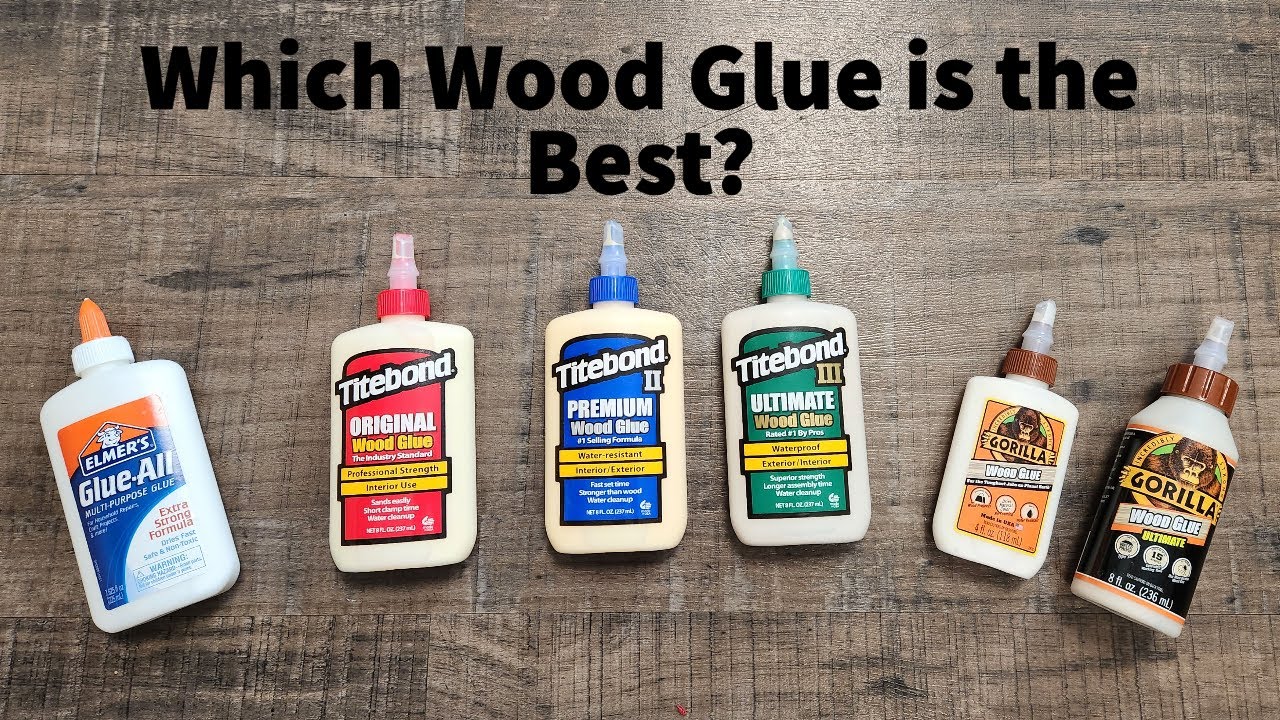Gorilla Glue and wood glue have different applications; Gorilla Glue is versatile for various materials, while wood glue is specifically designed for wood projects. Gorilla Glue creates a strong bond on multiple surfaces, while wood glue provides a reliable hold tailored for wood.
Both have their strengths and best uses depending on the project requirements. Understanding the differences between these two types of adhesives can help you choose the right one for your specific needs. We will delve deeper into the distinctions between Gorilla Glue and wood glue, exploring their features, applications, and when to use each type of glue for optimal results.

Introduction To Adhesive Power
The adhesive power of Gorilla Glue and Wood Glue are essential for any woodworker. It is important to understand the basics of both types of glue before choosing one. Gorilla Glue is a polyurethane-based adhesive that is waterproof and strong enough to bond almost any material. On the other hand, Wood Glue is a PVA-based adhesive that is specifically designed for wood-to-wood bonding.
Choosing the right glue is crucial as it can make or break your project. Gorilla Glue is great for outdoor projects that require a strong bond and waterproof seal. Wood Glue is perfect for indoor projects that require a strong bond but don’t need to be waterproof. It is important to follow the manufacturer’s instructions when using any glue to ensure the best results.
| Gorilla Glue | Wood Glue |
|---|---|
| Waterproof | Not waterproof |
| Strong bond on almost any material | Specifically designed for wood-to-wood bonding |
| Expands as it dries | Does not expand as it dries |
Chemical Composition And Properties
Gorilla Glue and Wood Glue are two popular adhesives with different chemical compositions and properties. Gorilla Glue is a polyurethane adhesive known for its strong and versatile bonding capabilities. It expands as it dries, creating a powerful bond that is resistant to water, heat, and chemicals. On the other hand, Wood Glue, also known as carpenter’s glue, is made from synthetic resins and offers excellent bonding strength specifically for wood materials. It dries to form a rigid bond that is ideal for woodworking projects.
Breaking down Gorilla Glue, it consists of polyurethane polymer and isocyanate, giving it the ability to create strong bonds on various materials. Understanding Wood Glue involves recognizing its composition of synthetic resins, water, and additives, providing it with the necessary properties for bonding wood surfaces effectively.
Bond Strength And Durability
Bond strength and durability are key factors to consider when comparing Gorilla Glue and wood glue. Gorilla Glue offers exceptional bond strength, ensuring a long-lasting hold on various materials. Wood glue, on the other hand, is specifically formulated for bonding wood surfaces, providing reliable durability for woodworking projects.
Choose the glue that best suits your specific needs for a strong and durable bond.
| Bond Strength and Durability |
| Gorilla Glue boasts exceptional bond strength and durability, making it ideal for heavy-duty applications. Its ability to withstand pressure and weight sets it apart. |
| Wood Glue, on the other hand, is renowned for its resilience. It excels in providing a lasting bond that can withstand various environmental factors. |
Versatility Across Materials
Gorilla Glue and Wood Glue are both adhesive options that offer different benefits based on your project needs.
Gorilla Glue: This multi-surface solution is known for its versatility. It works effectively on various materials, including wood, metal, stone, ceramics, foam, glass, and more. With its strong adhesive properties, Gorilla Glue creates a durable bond that withstands moisture, heat, and cold temperatures. It expands as it cures, filling any gaps or cracks for a secure hold. Whether you’re working on a woodworking project or repairing household items, Gorilla Glue provides a reliable and long-lasting solution.
Wood Glue: Specifically designed for woodworking, Wood Glue offers a strong bond that is ideal for joining pieces of wood together. It provides excellent adhesion and has a quick drying time, making it suitable for various woodworking applications. Wood Glue is easy to sand and paint over, ensuring a seamless finish. If you’re working exclusively with wood, Wood Glue is the specialized adhesive that will meet your specific requirements.
When choosing between Gorilla Glue and Wood Glue, consider the materials you’ll be working with and the specific demands of your project to make the right adhesive choice.
Curing Time And Clamping
Both Gorilla Glue and wood glue require adequate curing time and clamping to ensure a strong bond. Gorilla Glue usually sets within 20-30 minutes, while wood glue may take up to 24 hours. Proper clamping is essential to maintain pressure for the duration of the curing process.
| Gorilla Glue | Wood Glue |
| Speed of curing: Dries in 1-2 hours | Patience needed: Takes 24 hours to cure |
| Clamping time: 30-60 minutes | Clamping time: 30 minutes |

Ease Of Use And Cleanup
| Gorilla Glue | Wood Glue |
| Requires moisture for activation | Works best on porous surfaces |
| Dries to a light tan color | Dries to a yellowish color |
| Water-resistant when cured | Not water-resistant |
Working with Gorilla Glue: Apply pressure while curing for best results.
Handling Wood Glue: Ensure surfaces fit snugly together for proper adhesion.
Environmental Impact And Safety
Gorilla Glue and wood glue both have environmental impacts and safety considerations. Gorilla Glue is waterproof and suitable for outdoor use, while traditional wood glue is non-toxic and easy to clean up. Consider the environmental impact and safety factors when choosing between the two for your project.
| Gorilla Glue is known for its versatile applications but its eco-footprint raises concerns. |
| Wood glue is considered a greener choice due to its biodegradability and eco-friendly ingredients. |

Cost Comparison And Value
Comparing the cost and value of Gorilla Glue and Wood Glue can help you make an informed decision. While Gorilla Glue may be more expensive, its versatility and strength make it a valuable investment. On the other hand, Wood Glue is a more cost-effective option for basic woodworking projects.
| Gorilla Glue | Wood Glue |
| Gorilla Glue offers strong bond but higher price. | Wood Glue is cost-effective but may lack strength. |
| Consider project needs before choosing glue type. | Evaluate long-term durability for best value. |
| Factor in usage frequency for long-term savings. | Compare prices based on project requirements. |
Real-world Applications And Testimonials
Real-world applications demonstrate Gorilla Glue’s strength and versatility, making it the superior choice for woodworking projects. Testimonials attest to its superior adhesive qualities compared to traditional wood glue, offering a reliable and durable hold for any DIY project.
| Gorilla Glue | Wood Glue |
| Strong adhesive | Traditional choice for woodworking |
| Waterproof | Great for indoor projects |
| Versatile | Preferred for furniture making |
Final Verdict: Choosing The Right Glue For Your Project
Gorilla Glue and Wood Glue are both effective adhesives, each with its own strengths and weaknesses. Gorilla Glue offers excellent versatility and strong bonding power, making it ideal for a wide range of materials, including wood, metal, and plastic. On the other hand, Wood Glue is specifically formulated for wood-to-wood bonding, providing a reliable and durable hold for woodworking projects. When deciding between the two, consider the specific requirements of your project. If you prioritize versatility and strength across various materials, Gorilla Glue may be the better choice. However, for woodworking projects that demand a specialized wood adhesive, Wood Glue is the recommended option. Ultimately, the right choice depends on the nature of your project and the materials involved.
Frequently Asked Questions
Is Gorilla Glue Stronger Than Wood Glue?
Gorilla Glue is generally stronger than Wood Glue as it can bond to multiple surfaces, including wood, metal, ceramics, and plastic. However, Wood Glue is specifically designed for bonding wood and can create a strong bond between wood pieces.
Can Gorilla Glue Be Used On Wood?
Yes, Gorilla Glue can be used on wood as it bonds to most surfaces, including wood, metal, ceramics, and plastic. However, it is important to note that Gorilla Glue can expand as it dries, so it is recommended to use it sparingly on wood.
What Is The Difference Between Gorilla Glue And Wood Glue?
The main difference between Gorilla Glue and Wood Glue is their bonding strength and versatility. Gorilla Glue can bond to multiple surfaces, including wood, metal, ceramics, and plastic, while Wood Glue is specifically designed for bonding wood and can create a strong bond between wood pieces.
Can Wood Glue Be Used On Other Surfaces Besides Wood?
Wood Glue is specifically designed for bonding wood and may not be effective on other surfaces. It is recommended to use an adhesive that is specifically designed for the surface you are bonding, such as Gorilla Glue for bonding multiple surfaces.
Conclusion
To sum it up, both Gorilla Glue and Wood Glue have their unique strengths and applications. Gorilla Glue excels in its versatility and ability to bond various materials, while Wood Glue is specifically formulated for woodworking projects. Ultimately, the choice between the two depends on the specific needs of your project.
Consider factors such as the materials involved, the required strength, and the intended use. By understanding their differences, you can confidently select the right glue for your next project.

